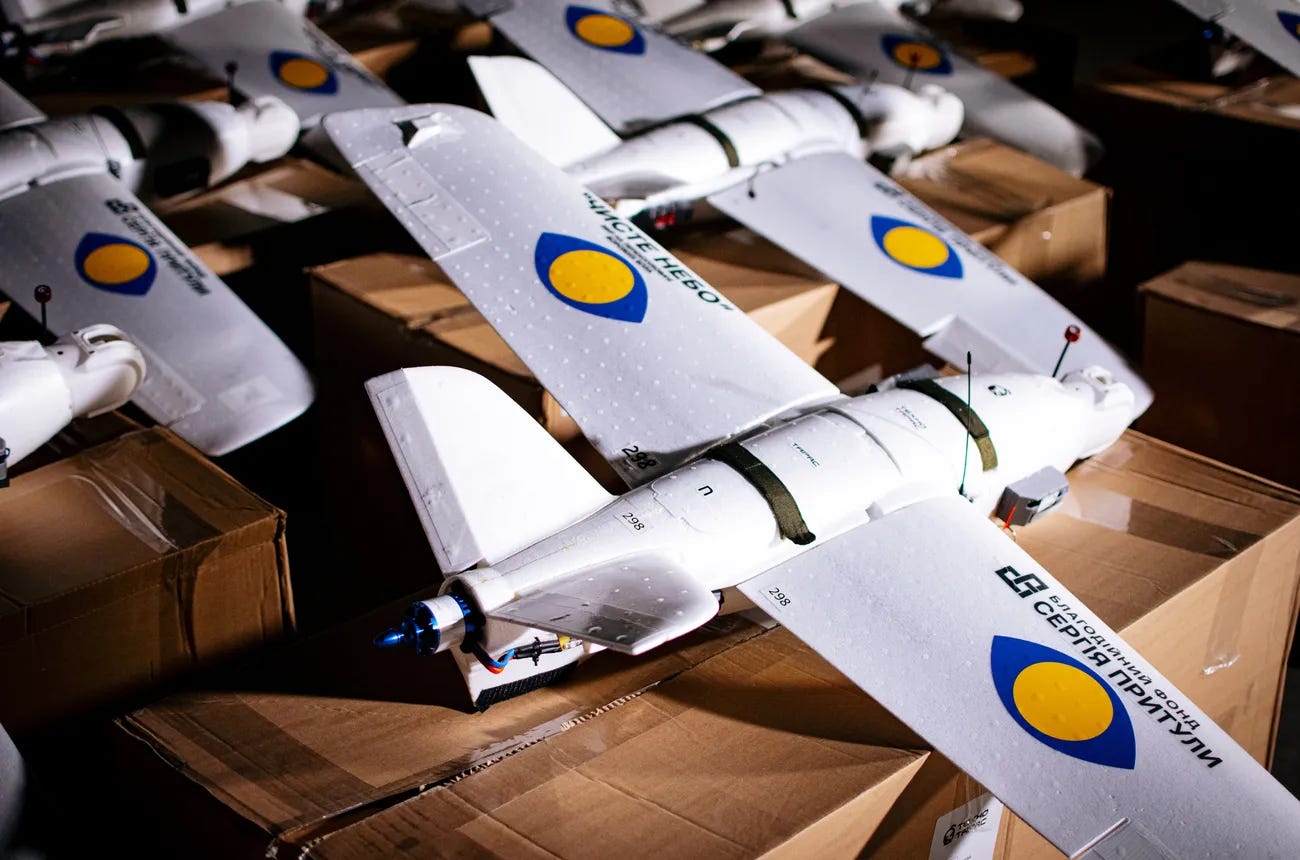Drone warfare in Ukraine: successful interceptors and the Ukraine-Russia ground robotic technology race
Three key stories of the week: Apr. 16 - Apr. 22, 2025

Last week, Ukraine achieved a major milestone in drone warfare when its interceptor drone successfully brought down the Forpost-R, Russia’s largest drone target to date, with an estimated value of $7 million. The development and production of low-cost interceptor drones has become a top priority for Ukraine’s defense sector in 2025. Another key focus is the rapid expansion of ground drone technologies, which are now being widely procured by Ukrainian government agencies.
As Ukraine continues to lead in these innovations, Russia is scrambling to keep pace, including plans to test a combat-ready humanoid robot as early as this year.
Thank you for reading and supporting my work! Until May 1, I'm offering a 20% discount on paid subscriptions to my newsletters.
“Our goal is to blind the Russians”: What’s known about Ukrainian drones used to shoot down Russian reconnaissance UAVs
To intercept Russian reconnaissance drones, Ukrainian forces are using various tools, including "Techno Taras", a fixed-wing Ukrainian interceptor drone units, according to Militarnyi. These drones are a cost-effective alternative to expensive surface-to-air missiles: each Techno Taras unit costs just $1,600, while the enemy drones they intercept can cost hundreds of thousands of dollars.
A full Techno Taras system includes:
20 aircraft (15 for daytime use, 5 for night missions)
A ground control station
A catapult launcher
Key specifications:
Flight time: Over 1 hour
Top speed: 160 km/h
Range: Up to 35 km
Maximum altitude: 6,000 meters
The aircraft’s airframe, initiation board, and warhead are produced in Ukraine, and the manufacturer is also exploring switching to domestically made engines.
The main advantage of this system is its secure digital long-range communication, which enables a wide operational radius and stable performance at distances of up to 35 kilometers within a combat zone.
One Techno Taras drone—worth $1,600—has successfully downed Russian UAVs like the Merlin (worth ~$300,000), demonstrating high operational cost-efficiency. These interceptors have also been used against Orlan, ZALA, and SuperCam drones. The estimated cost of the Ukrainian Techno Taras units used in operations is around 8–10 million UAH ($200,000 - 250,000), while the total value of downed enemy UAVs exceeds 500 million UAH ($12.05 mln).
As of today, 274 boards have been issued to various units. Of these, they have already used 160, which have shot down 133 enemy UAVs. Thus, at the time of publication by Militarnyi, the downing rate was 83%.
Read about Shahed interceptors in the previous edition of my newsletter.
Ukrainian government agencies are massively contracting ground drones
As of February 2025, there were over 200 GRS manufacturers in Ukraine, with more than 40 designs codified. All robot manufacturers are new companies, and they face challenges in proving their capabilities.
Keep reading with a 7-day free trial
Subscribe to Ukraine's Arms Monitor to keep reading this post and get 7 days of free access to the full post archives.



